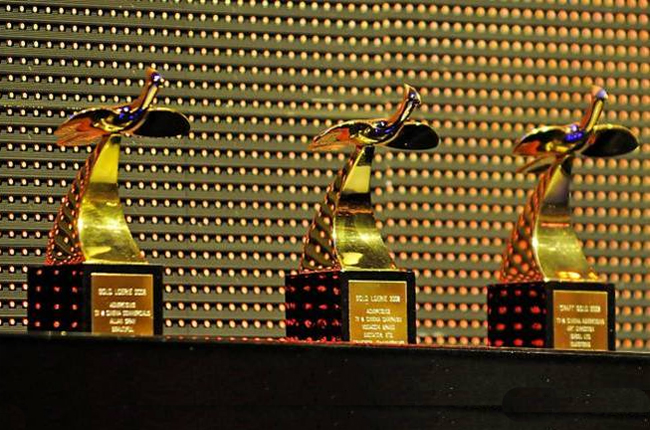There are more than enough people who dislike Andrew Human, CEO of the Loerie Awards, to draw from to do a hatchet job on the man or to craft a snide-yet-funny character assassination. It’s easy enough to find people who’ll offer damning judgement of him, but that would be hardly fair.
There’s a lot that Human needs to be credited for, more especially reinventing the Loerie Awards and taking what was essentially a once-a-year “party until you fall over” event and transforming it into a year-long programme with multiple elements aimed at promoting creativity, brand communication and the broader advertising community.
Human’s achievements since taking over the management of the awards in 2005 include establishing a scholarship programme, introducing a travelling exhibition that showcases award-winning work to broader communities, and the establishment of a top-calibre magazine that strokes industry egos.
Where Human appears to have failed is in building strong and professional relationships with industry journalists. To be more exact, the Loeries have had a fractured relationship with journalists and members of the media over many years, culminating this year in the alleged blacklisting of Bizcommunity’s Herman Manson. (Disclosure: Mandy de Waal and Herman Manson have a long-standing working relationship through the MarkLives and MandyLives blogs. De Waal also contributed to the now defunct Brand Magazine of which Manson was a founder. - Ed)
“Over the past 20 years the Loeries organisation has constantly caused trouble with the trade media that covers the media and marketing industry,” says Chris Moerdyk, non-executive chairman of trade portal Bizcommunity. “It all stems from one thing and that is that somehow successive Loerie committees have believed the trade media should see themselves as publicists for the advertising industry, which of course they are not. That’s absolutely at the root of the problem. It is not just the recent Loeries - it has been like that since Noah won a gold.”
This was confirmed by the editor-in-chief of AdVantage Magazine, Louise Marsland who says: “The relationship between the Loeries committee and the media is at an all-time low, because of the lack of understanding of the media’s role and a lack of respect for what the media does. In certain quarters there is a lack of understanding of key media (people) who must be able to raise constructive debate, and not just practice sunshine journalism. There is a lack of tolerance of critical journalism.”

Photo: Loeries 2010 call for entries.
The cause of the dispute between Manson and Human had its genesis in an article the marketing journalist wrote about the drop off in the number of digital entries for this year’s awards. Manson says this story was pitched to him by the Loeries communication’s department which sent him talking points that included information on the volume of entries. Manson interviewed the delegate put forward by the Loeries and asked why the number of entries had fallen in the digital category. “That’s the story that I wrote and Andrew (Human) drafted a response below that story basically saying the story was nonsense and he went on to list the statistics, which only served to illustrate my point that the entries had declined. I still don’t see why he would disagree with what I say in the story when his stats underscore the decline evidenced in the story.”
Manson says he wanted to do a follow-up story and was subsequently told by the media and operations manager of the Loerie Awards, Michelle Barrett, that his copy would need to be submitted to the Loeries to be vetted prior to being published. “They referred to this as a new media policy. I declined politely to submit my copy for prior approval.” Mails from both Barrett and Human on 2 September confirm this, with Human writing that he was no longer prepared to assist Manson with research for stories.
Human then called Bizcommunity’s Simone Puterman to complain about Manson. Puterman says that during the conversation Human revoked Manson’s media accreditation, saying “the Loeries would no longer deal with Herman [Manson] in any capacity whatsoever and that they wouldn't assist him with research or interviews or comments.”
Manson says he put a call into the Loeries and was transferred to Human. “I realised he was quite beside himself. He asked me whether the conversation was on or off the record and I decided to put it off the record since I had hoped to resolve the issue. But he completely misused that. He basically spent half an hour screaming, shouting and threatening me.”
Bizcommunity sought advice from professional journalism bodies Sanef and ProJourn, and responded to Human in writing. In the email Bizcommunity said it was reconsidering its partnership with the Loeries and that the request to vet copy was unacceptable. Bizcommunity demanded that Manson’s accreditation be reinstated and asked the Loeries to apologise to the journalist.
As a symbolic gesture Bizcommunity boycotted the Loeries in part. “We felt it was one way we could protest our feelings and show our unhappiness other than joining a group like Sanef, which also queried what was going on,” says Robin Parker, managing director of Bizcommunity. “We withdrew our brand activation at the Loeries while continuing our coverage of the event. Hopefully in the near future we can convene a broader meeting of people involved so that we can thrash out the attitudes that seem to prevail with many organisations who demand that journalists pass content to them for approval, or who want journalists to only see the good or PR side of things.”
ProJourn general secretary Samantha Perry says restricting access to journalists is unconstitutional. “Our right to access and to report on information in terms of the freedom of the press is enshrined in the Constitution. Certainly there would be a case if Human had obstructed Manson’s ability to do his job because of a dispute.” Perry says journalists must be encouraged to take issues like this to professional bodies who will mediate or fight their cause. “Outright banning of a journalist because you don’t like what they’re saying is like Julius Malema throwing Jonah Fisher out of a press conference. It doesn’t do anybody any good and it is certainly not good for the profession in terms of a journalist’s ability to do their job. It is not doing the Loeries any favours either because this is obviously going to overshadow what is otherwise a fabulous industry event.”
The issue of Manson’s accreditation came to a head when he wrote an open letter to The Creative Director’s Circle on 20 September informing them what had happened. This evoked a flurry of communication between industry heavyweights on the Loerie committee and elicited a rapid denial from Human who said he’d never revoked Manson’s accreditation in the first place.
In a phone interview between Human and The Daily Maverick, the Loeries CEO was adamant that the incident never happened. “My only comment is that his accreditation was never withdrawn. If you show me written evidence that his accreditation was withdrawn, I will personally give you R10,000,” said Human. When asked whether Manson, Puterman, Parker and Moerdyk lied about the issue, Human proffered a one-word reply: “Yes.”
“I am not even going to comment on this. This is not even journalism. My comment is that we have nothing to do with Herman Manson. He is free to write whatever he wants to and his accreditation was never withdrawn,” Human says.
“I have only had one phone call with Herman Manson and, at the beginning, it was stated that the conversation was off the record, not half-way through the conversation. If anything what was said in that conversation Herman had a problem with, my understanding is that he would have to formally carry it forward by saying to me: ‘Can we address this on the record?’ For example, if I say to you we’re having an off-the-record conversation and I say I’ve revoked… err… I’m not inviting you to my birthday party, then you would have to say: ‘OK, this has to be on the record so can you please tell me officially I am not invited to your birthday party?’ Then I will then send you an email and say you are not invited to my birthday party, and then you will not be invited. Until then you were (sic) invited.”
Human says his mandate is to promote the brand communication industry. However, following the fracas with Bizcommunity, news of what transpired between Manson and Human was the centre of much debate at the awards and some members of the media stayed away from some events in self-elected protest. If you do a search for news of the 2010 Loeries, there’s very little press on the awards aside from Bizcommunity’s coverage.
And what of Human’s detractors? Interestingly enough, they are not only members of the media. People in the industry, who have worked with Human, asked to be quoted off the record for fear of reprisal.
“He is very, very good at what he does and has been exceptional for the Loerie Awards,” said one source. “His innovation and his ability to reinvent the awards every year has been really good. He is always coming up with new ideas and in this respect he has been very good. However, the way he deals with people is problematic. Human didn’t care about media relationships and he was often told that there were problems with his handling of the media. He also has a penchant for being emotional… He definitely needs a lot of help with his management of the media.”
According to Nielsen, the advertising industry spent some R24.416 billion in the media last year which indicates the size of the industry and how important the relationship between the advertising and media industries is. With recessionary factors and decreased advertising spend putting increased pressure on the media, smarter media players have chosen to react with more critical analysis and stronger investigative journalism to attract readers and secure advertising.
It looks as if the critical reporting is something the Loeries will have to get used to because it’s not going away. If anything, the trade media increasingly sees investigative journalism as a means of remaining relevant. “The trade media has been doing a lot more investigative and critical reporting which is good,” says Moerdyk. “Just as it is important to have a free press in South Africa that can watch government spending, that can watch the way government does its business, you have to have trade press watch how the mines run their business, how the banks run their business and how the marketing and advertising industries run their businesses. The media is becoming more competitive so they have to produce quality. They have to produce what their consumers want to read, and consumers want to be sure that there is no stone left unturned.” DM





